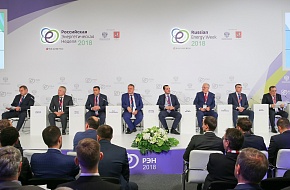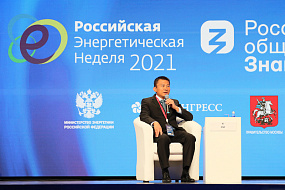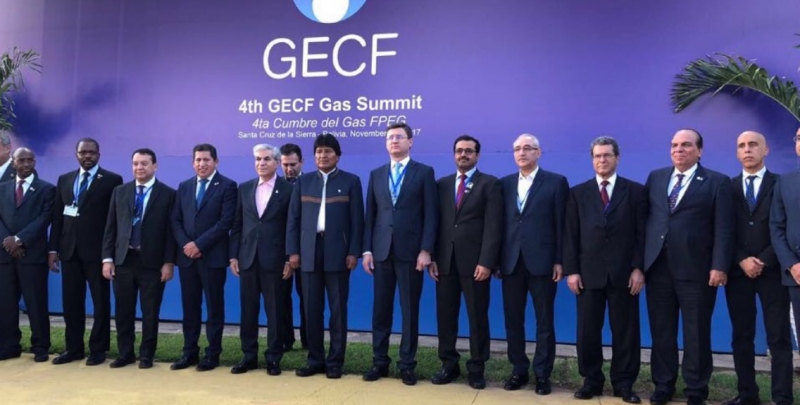The Effectiveness of Energy Regulation: General Approaches and Divergence between Countries

KEY CONCLUSIONS
Global demand for energy products is steadily growing
“Expert forecasts suggest that there will be significant growth in energy consumption over the next two decades. Such growth will amount to roughly 30%, and this is one of the trends”, Russian Minister of Energy Alexander Novak said.
“Global demand for petrochemicals will grow by 6% per year”, Novak said.
“The wave of energy connectivity associated with the conversion of most energy-consuming devices to electricity will continue. The growth in electricity consumption will be two-fold, i.e. the generation of electricity from fossil fuels will account for most of this consumption”, Novak said.
The energy industry is undergoing a large-scale transformation
“We are in the midst of a great transition in the energy sector. Each country is undergoing dramatic changes, and at the global level we are seeing three fundamental drivers that support this: digitalization, decarbonization, and decentralization”, Secretary General and CEO of the World Energy Council Christoph Frei said.
“Every country in this transition process intends to ensure a balance of the following factors: high energy security, energy capital issues, and access to power grids in addition to stable environmental factors”, Frei said.
Energy is the foundation for economic development and independence
“The problem of energy security is an important factor in national sovereignty,” Hungarian Minister of Foreign Affairs and Trade Peter Szijjarto said.
“All nations need energy to develop, and energy resources, especially gas, are vital for development in any country. This is a strategic commodity”, Qatari Minister of Energy and Industry Mohammed Bin Saleh Al-Sada said.
“Africa needs liquefied natural gas not only for electricity, but for industrialization as well [...] LNG is an inexpensive resource that is cheaper than liquid crude oil. It is more eco-friendly and easier to distribute. If these small terminals are built in Africa, we can expect Africa to become a large market, including for Europeans”, Equatorial Guinean Minister of Mines and Hydrocarbons Gabriel Mbaga Obian Lima said.
PROBLEMS
Dependence of energy on political factors
“Market regulation, which often aims to place insufficiently substantiated restrictions on infrastructure projects, is becoming more stringent. There are new protectionist measures that may be introduced regarding the implementation of major energy projects. This negates the achievements that we have managed to make over the past 30 years, hinders long-term investment, and increases risks for global investors”, Novak said.
“We are opposed to artificial restrictions and sanctions whose causes and motives lie outside the energy sector and which create huge imbalances and uncertainties on energy markets”, Novak said.
A lack of accessibility to energy resources
“The main challenge facing our industry is accessibility to fuel for the power industry”, Iraqi Minister of Oil Jabbar Ali Hussein Alluaibi said.
SOLUTIONS
Development of international cooperation
“Our energy policy aims to expand and deepen constructive and mutually beneficial cooperation with all interested states”, Novak said.
“Dialogue is the basis of sustainable development and the basis for solving the difficult challenges that states face today in increasing their energy potential and attaining energy independence”, Russian Deputy Minister of Energy Yury Senturin said.
“In the future, the challenges in our industry will be interconnected. We are battling our current challenges on a daily basis”, OPEC Secretary General Mohammed Barkindo said.
“Over the past 10 years, we have carried out extensive work to modernize the energy system of Belarus and we will continue it. Another strategic objective is diversification, which provides for the maximum involvement of local types of fuel and the use of atomic energy. Jointly with the Russian Federation, Belarus is implementing a project to build the Belarusian Nuclear Power Plant with installed capacity of 2,400 MW. The first unit will be put into operation in 2019 and the second in 2020. The commissioning of the nuclear power plant provides serious incentive for an objective assessment of the prospects for trade interaction between Belarus and Russia”, Belarusian Minister of Energy Viktor Karankevich said.
Enhancing competitiveness
“For us, prices are a very important issue. We can only get involved with new sources [of energy] when we see that prices are competitive according to market standards”, Szijjarto said.
A non-discriminatory approach to different types of energy resources
“We can’t discriminate against nuclear energy in a negative light. It must be taken into account as an equal partner with other types of energy”, Szijjarto said.
“There should be no gas discrimination [...] Gas should be a priority since gas is an eco-friendly fuel that not only improves the local environment in cities, but also allows us to solve climate change issues in a positive way”, Sada said.
Improving regulatory effectiveness
“It is impossible to achieve results and meet challenges in the energy sector without effective regulation. International practice is needed”, Azerbaijani Minister of Energy Parviz Shahbazov said.
Introducing new technologies
“We are planning to attract foreign investment to utilize the introduction of digital technologies in the production of electricity at our energy sources. Special attention is being paid to the grid system”, Karankevich said.
“The main objective is not just to utilize gas reserves, but to develop the industry and use new technologies”, Alluaibi said.
Boosting the share of energy from renewable sources in the energy balance
“Renewable energy sources remain among the most important and dynamic energy sectors. Investments in this sector account for more than half of total investment in the global electric power industry”, Novak said.
“The development of renewable energy sources is a matter of energy security for Serbia. Two-thirds of all investments in the energy sector today are spent on the development of this particular sector. Wind and biomass account for 20% of total energy consumption in the country today. And our plans are very ambitious. My people say that we will achieve 30% renewable energy supplies by 2030. I want to believe them, and we have made this a goal”, Serbian Minister of Mining and Energy Aleksandar Antic said.





